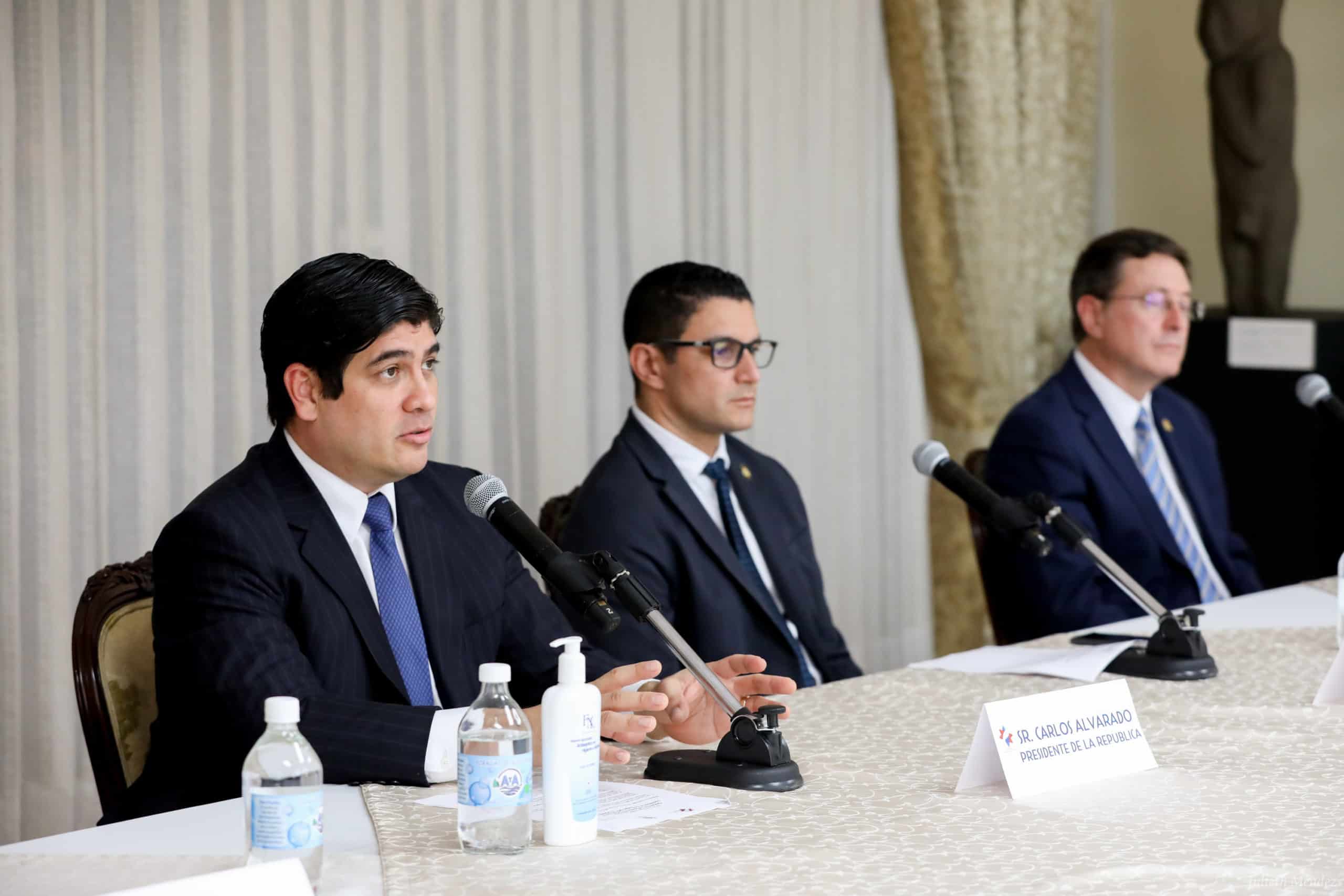Costa Rica will begin easing some coronavirus measures starting May 1, President Carlos Alvarado and Health Minister Daniel Salas announced Monday afternoon.
Theaters, gyms and athletic centers — which have been closed since March 18 — will be permitted to reopen during the week. But some of the country’s most impactful restrictions, including a ban on arriving tourists, will continue.
The Costa Rican government will increase or further roll back social distancing measures every 15 days after evaluating the spread of the coronavirus.
“This is not a moment to sing our victory,” President Alvarado said. “This is a moment to remain disciplined.”
The country has reported 11 consecutive days with decreasing active coronavirus cases.
Here is the full list of changes announced Monday:
- The following changes apply during the week between 5 a.m. and 7 p.m. beginning on May 1:
- Theaters can open. They must support electronic reservations, and guests must sit a minimum of 2 meters apart.
- Non-contact sports facilities can open at 25% of their rated capacity.
- Gyms can open at 25% of their rated capacity. They must establish hours and offer appointments exclusively for at-risk people.
- Swim schools can open at 25% of their rated capacity.
- Bicycle rentals are permitted under rigorous cleaning protocols.
- The following changes apply during the weekend between 5 a.m. and 7 p.m. beginning on May 1:
- Beauty salons and barber shops can open at 50% of their rated capacity. Prior reservations are required.
- Auto-repair shops can operate at 50% of their rated capacity.
- Parking lots can operate.
- Bicycle rentals are permitted under rigorous cleaning protocols.
- The current vehicular restrictions will continue without changes until May 15.
Beaches and national parks remain closed, President Alvarado said. Mass gatherings, including religious gatherings and in-person learning, remain suspended.
The current border restrictions will remain active until at least May 15.
“I think Costa Rica has the ability [to slow the coronavirus] and is demonstrating it,” Salas said. “This is not only due to the actions we’ve taken as a government but also from a population that understands that we’re not in an April, almost May, like any other year.”
The easing of social distancing measures carries some risk, authorities acknowledged. Costa Rica’s public health system has 140 intensive care beds — meaning it has a limited capacity to respond to a sudden rise in critical COVID-19 patients.
And while Costa Rica has largely managed to contain the coronavirus, the country could experience a rapid rise in cases since the majority of the population likely hasn’t been exposed to SARS-CoV-2.
“The work of all people — all Costa Ricans and all residents — is critical for us to have ongoing success, like the relative but fragile success we’ve had so far,” President Alvarado said.
Costa Rica declared a State of Emergency due to the coronavirus on March 16. It has suspended mass gatherings since March 9 and closed its borders to arriving tourists since March 19.
The crisis has had a significant impact on the country’s economy. The Central Bank projects Costa Rica’s Gross Domestic Product (GDP) will decrease by 3.6% in 2020 due to the coronavirus pandemic.
All branches of economic activity will be hit by the crisis, the Central Bank says, but the tourism sector, which comprises an estimated 8.2% of Costa Rica’s gross domestic product, has been particularly affected. Nearly 220,000 people are employed in the tourism sector, according to official data.
“Zero income, total cancellation,” said Rubén Acón, president of the National Chamber of Tourism (CANATUR), in March. “Tourism is paralyzed.”
Throughout the crisis, the Health Ministry and President Alvarado have coordinated with an economic council to apply appropriate health measures while attempting to avoid provoking an unrecoverable economic situation.
This is a developing story and is being updated.






